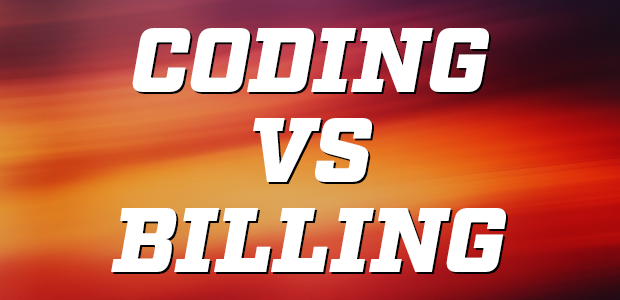Two crucial roles often cause confusion due to their interconnected nature: medical coding and medical billing. While both are essential components of the healthcare revenue cycle, they involve distinct responsibilities, skill sets, and career paths.
We aim to demystify these professions, highlighting their differences, similarities, and importance in the healthcare industry.
Introduction to Medical Coding and Medical Billing
Before delving into the differences, it’s important to understand what each role entails at a fundamental level.
Medical Coding
Medical coding is the process of transforming healthcare diagnoses, procedures, medical equipment, and services into universal alphanumeric codes. This standardized coding system allows for uniform documentation of medical services across healthcare providers and facilities.
Medical Billing
Medical billing, on the other hand, is the process of submitting and following up on claims with health insurance companies to receive payment for services rendered by a healthcare provider. This process involves translating the codes provided by medical coders into a billable claim.
Key Differences Between Medical Coding and Medical Billing
While both professions are integral to the healthcare revenue cycle, they differ in several key aspects:

Primary Focus
Medical Coding:
- Focuses on accurately translating medical documentation into standardized codes
- Requires in-depth knowledge of medical terminology, anatomy, and physiology
- Involves analyzing medical records and assigning appropriate diagnosis and procedure codes
Medical Billing:
- Concentrates on the financial aspects of healthcare
- Requires understanding of insurance policies, reimbursement methods, and healthcare regulations
- Involves submitting claims, tracking payments, and managing denials and appeals
Skill Set Required
Medical Coding:
- Strong attention to detail
- Analytical thinking
- Proficiency in medical terminology and anatomy
- Understanding of various coding systems (ICD-10, CPT, HCPCS)
- Ability to interpret complex medical documentation
Medical Billing:
- Strong communication skills
- Proficiency in medical billing software
- Understanding of insurance policies and reimbursement procedures
- Knowledge of healthcare laws and regulations
- Problem-solving skills for resolving claim denials
Daily Tasks
Medical Coding:
- Review patient medical records
- Assign appropriate diagnosis and procedure codes
- Ensure compliance with coding guidelines
- Consult with healthcare providers for clarification
- Stay updated on coding changes and regulations
Medical Billing:
- Prepare and submit claims to insurance companies
- Follow up on unpaid claims
- Verify insurance coverage and patient eligibility
- Process payments and handle denials
- Communicate with patients regarding billing inquiries
Tools and Resources Used
Medical Coding:
- Coding manuals (ICD-10-CM, CPT, HCPCS)
- Electronic health records (EHR) systems
- Coding software
- Medical dictionaries and anatomy references
- Coding guidelines and compliance resources
Medical Billing:
- Practice management software
- Electronic claims submission systems
- Insurance verification tools
- Billing and reimbursement guidelines
- Healthcare laws and regulations references
Interaction with Healthcare Providers and Patients
Medical Coding:
- Limited direct interaction with patients
- Frequent communication with healthcare providers for clarification on documentation
- Collaboration with other coders and auditors
Medical Billing:
- More frequent interaction with patients regarding billing inquiries
- Communication with insurance companies
- Coordination with healthcare providers and administrative staff
Career Progression and Specializations
Medical Coding:
- Specializations in areas such as inpatient coding, outpatient coding, or specific medical specialties
- Advancement to roles like coding auditor, coding manager, or clinical documentation improvement specialist
- Opportunities to work in various healthcare settings, including hospitals, clinics, and coding companies
Medical Billing:
- Specializations in areas like insurance verification, accounts receivable, or denial management
- Advancement to roles such as billing manager, revenue cycle analyst, or practice manager
- Opportunities in healthcare providers, billing companies, and insurance companies
Similarities Between Medical Coding and Medical Billing
Despite their differences, medical coding and medical billing share some commonalities:
- Healthcare Revenue Cycle: Both roles are crucial components of the healthcare revenue cycle, working together to ensure proper reimbursement for medical services.
- Compliance: Both professions require strict adherence to healthcare regulations, including HIPAA for patient privacy and security.
- Attention to Detail: Accuracy is paramount in both roles to avoid claim denials, delays in reimbursement, and potential legal issues.
- Continuous Learning: The healthcare industry is constantly evolving, requiring professionals in both fields to stay updated on changes in regulations, codes, and best practices.
- Technology Dependence: Both roles heavily rely on various software systems and electronic health records.
The Interrelationship Between Medical Coding and Medical Billing
While distinct, medical coding and medical billing are closely interrelated and dependent on each other for the smooth functioning of the healthcare revenue cycle:
- Information Flow: Medical coders provide the coded information that billers use to create and submit claims.
- Accuracy Dependency: The accuracy of medical billing depends heavily on the precision of medical coding.
- Feedback Loop: Billers often provide feedback to coders about denied claims, helping improve coding accuracy.
- Compliance Collaboration: Both professions work together to ensure compliance with healthcare regulations and payer requirements.
- Revenue Optimization: The combined efforts of coders and billers directly impact a healthcare provider’s revenue and financial health.
Impact on Healthcare Industry
The roles of medical coding and medical billing have a significant impact on the healthcare industry:
- Financial Stability: Accurate coding and efficient billing processes ensure healthcare providers receive proper reimbursement for their services, maintaining financial stability.
- Data Analysis: The coded data generated by medical coders is valuable for healthcare research, epidemiology, and policy-making.
- Quality of Care: Proper coding and billing practices contribute to better documentation, which can lead to improved patient care and outcomes.
- Fraud Prevention: Both roles play a crucial part in preventing healthcare fraud and abuse by ensuring accurate representation of medical services.
- Healthcare Policy: The data generated through coding and billing processes inform healthcare policies and reimbursement models.
Challenges in Medical Coding and Medical Billing
Both professions face unique challenges in their day-to-day operations:
Medical Coding Challenges:
- Keeping up with frequent updates to coding systems and guidelines
- Interpreting complex medical documentation
- Ensuring specificity in code selection
- Balancing productivity with accuracy
- Adapting to new technologies and electronic health record systems
Medical Billing Challenges:
- Navigating complex insurance policies and reimbursement models
- Managing claim denials and appeals
- Staying compliant with ever-changing healthcare regulations
- Addressing patient concerns about billing and insurance
- Adapting to value-based care models and alternative payment methods
Future Trends in Medical Coding and Medical Billing
As the healthcare industry continues to evolve, both medical coding and medical billing are experiencing significant changes:
- Automation and AI: Artificial intelligence and machine learning are being increasingly used to automate certain coding and billing tasks, improving efficiency and accuracy.
- Remote Work: Both professions are seeing a rise in remote work opportunities, especially accelerated by the COVID-19 pandemic.
- Value-Based Care: The shift from fee-for-service to value-based care models is impacting how services are coded and billed.
- Increased Specialization: As healthcare becomes more complex, there’s a growing need for specialists in specific areas of coding and billing.
- Data Analytics: The role of data analytics is growing in both fields, with professionals increasingly expected to provide insights from coding and billing data.
Choosing Between Medical Coding and Medical Billing as a Career
For those considering a career in healthcare administration, choosing between medical coding and medical billing depends on several factors:
- Personal Interests: Those who enjoy working with medical information and have a keen eye for detail might prefer coding, while those who like financial processes and customer interaction might lean towards billing.
- Skill Set: Individuals with strong analytical skills might excel in coding, while those with good communication and problem-solving skills might thrive in billing.
- Work Environment: Coders often work more independently, while billers may have more interaction with patients and insurance companies.
- Career Goals: Consider long-term career aspirations and the advancement opportunities in each field.
- Education and Certification: Research the educational requirements and certification processes for each profession in your region.
Summary: Coding vs. Billing
While medical coding and medical billing are distinct professions, they are both integral to the healthcare revenue cycle and the overall functioning of the healthcare system. Understanding the differences and similarities between these roles is crucial for healthcare administrators, aspiring professionals, and anyone involved in healthcare management.
As the healthcare industry continues to evolve, driven by technological advancements, regulatory changes, and shifting care models, both medical coding and medical billing will remain essential, adapting to new challenges and opportunities. Whether choosing a career path or seeking to optimize healthcare operations, a clear understanding of these two professions is invaluable in navigating the complex world of healthcare administration.

